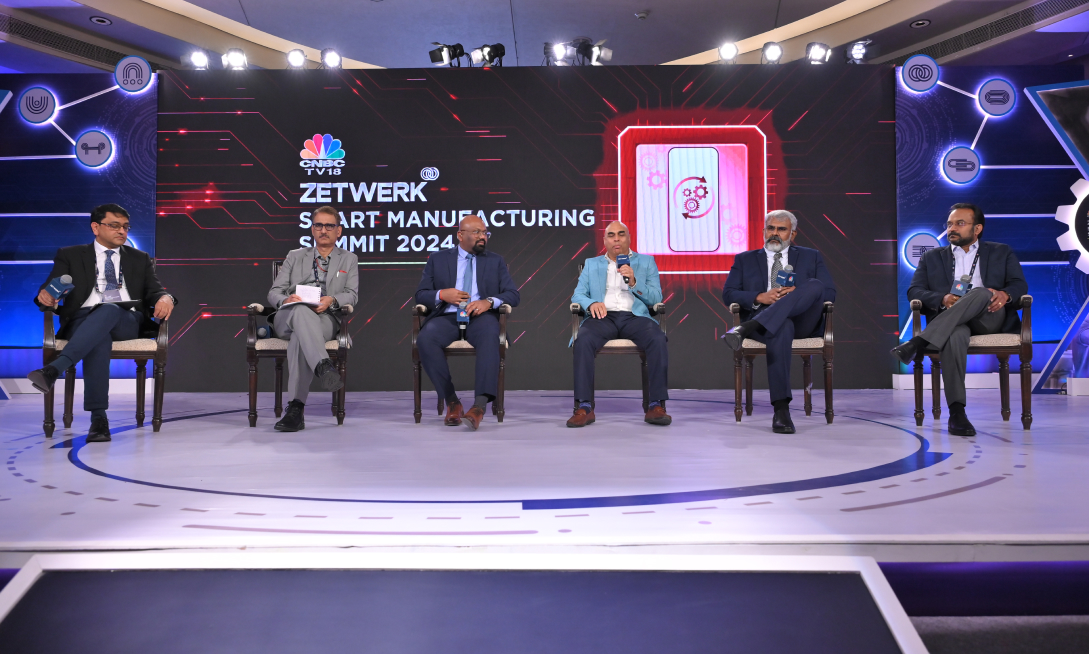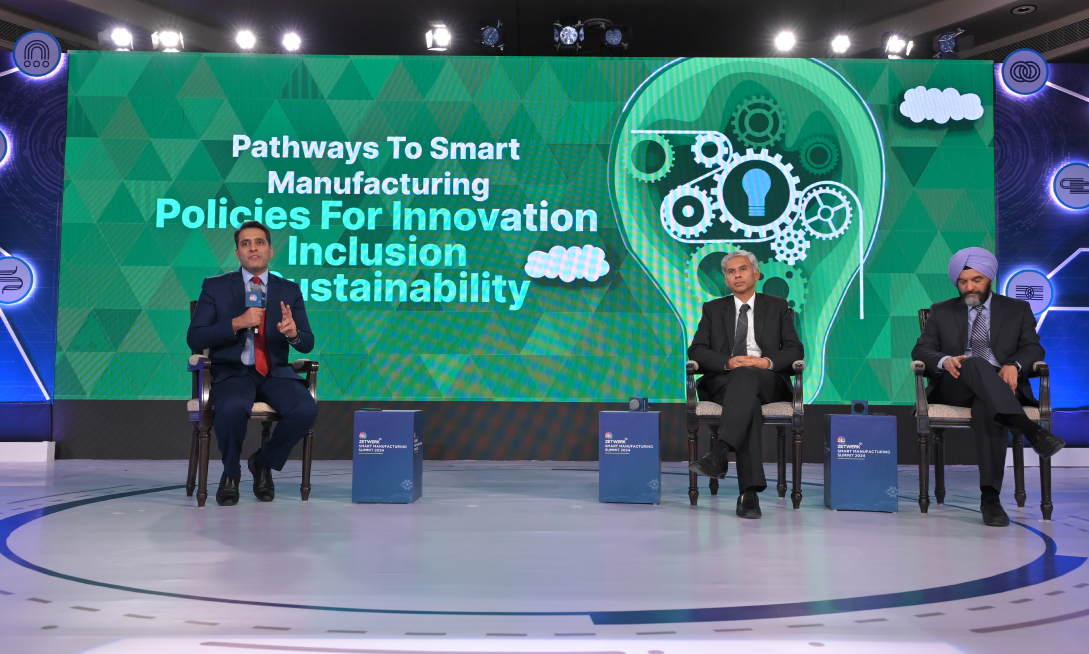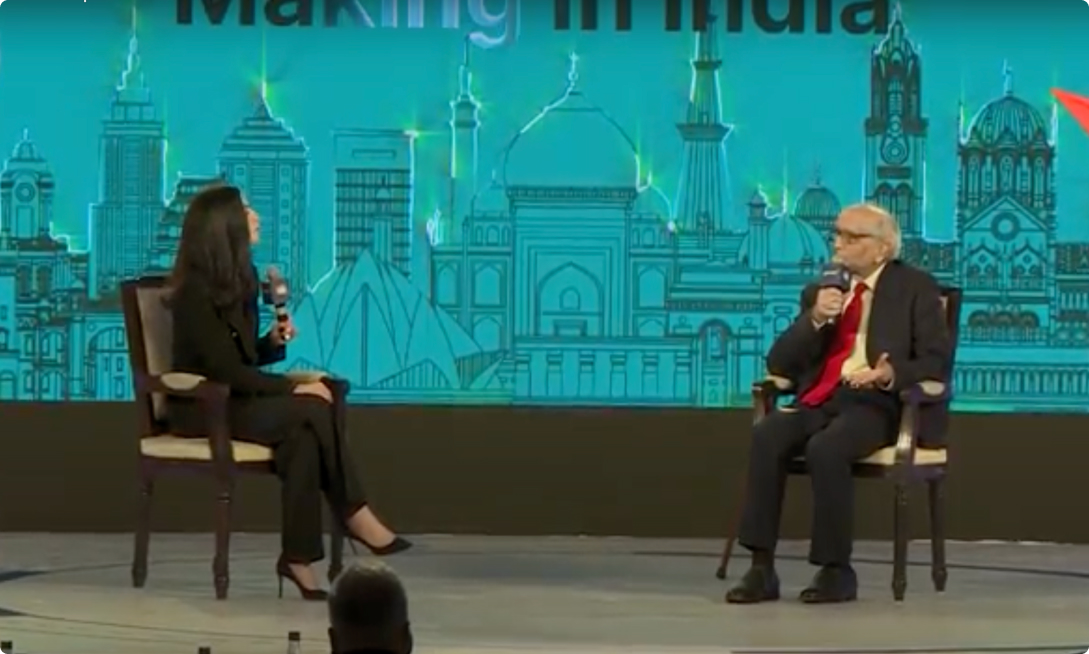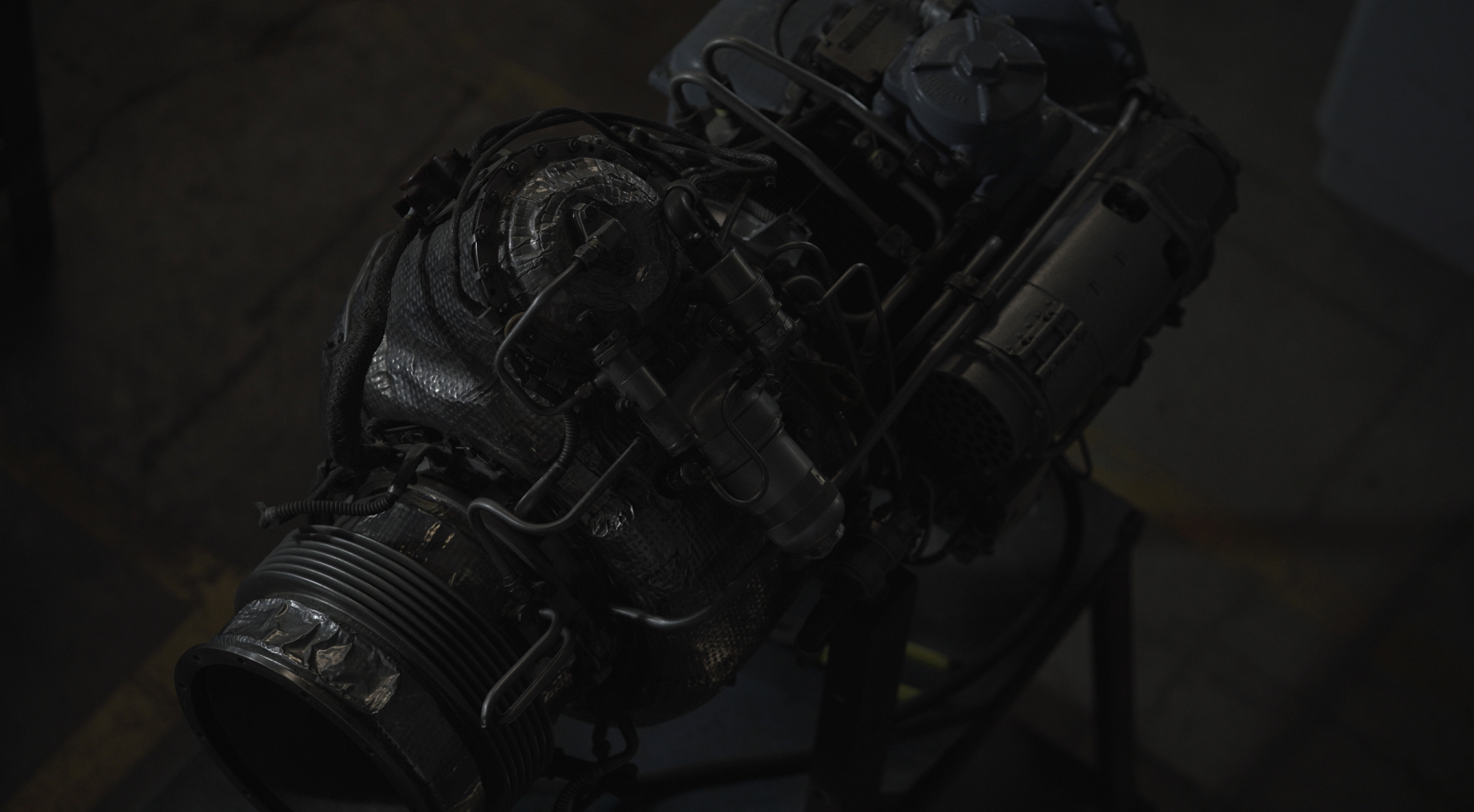Revolutionizing Manufacturing: Insights from the ‘Factories of The Future’ Panel at ZETWERK Smart Manufacturing Summit – 2024
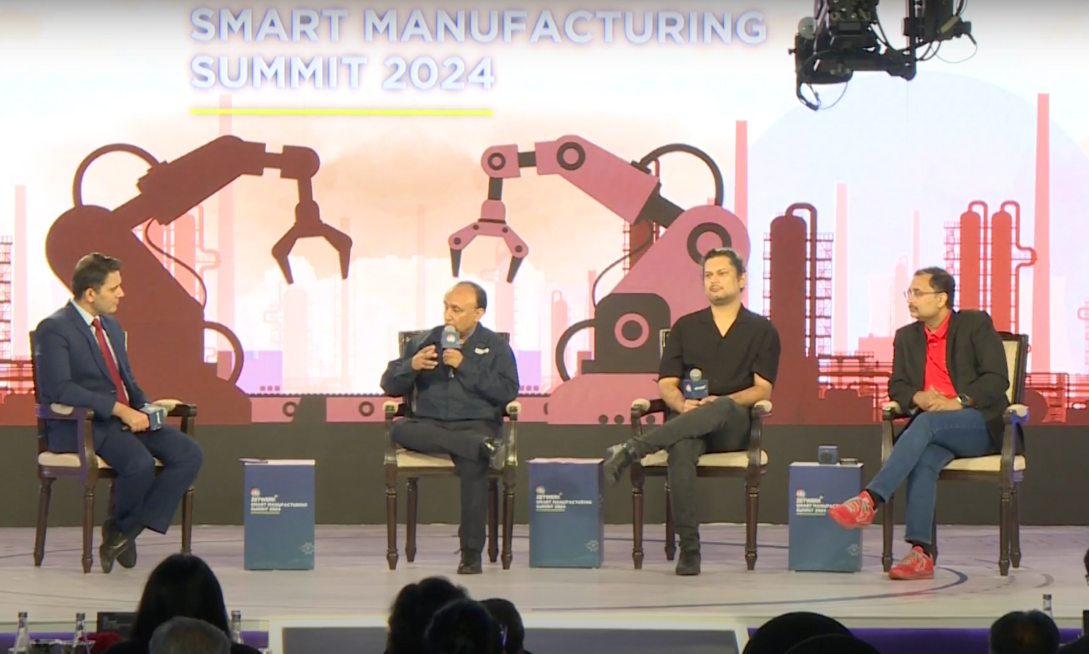
Exploring Agility, Sustainability, and Innovation in Industrial Manufacturing Through Expert Perspectives and Industry Strategies
Industrial manufacturing is evolving at an unprecedented pace, driven by technological advancements and changing consumer expectations. The concept of ‘Factories of The Future’ has become crucial, highlighting the need for agility, sustainability, and innovation across industries. In a recent panel discussion hosted at the ZETWERK Smart Manufacturing Summit – 2024, industry leaders spoke about the challenges and opportunities presented in this era.
The panelists, including Mr. Shashank Srivastava, SEO, Maruti Suzuki India Ltd., Mr. Bipul Chandra, Director, Ducati India, and Mr. Amrit Acharya, CEO and Co-founder, ZETWERK shed light on their respective industries and strategies for building factories of the future.
Embracing Technological Advancements
Mr. Srivastava highlighted the transformative impact of AI, ML, and IoT on automotive manufacturing. He emphasized how these technologies compress product development cycles, enhance quality through digital simulations and additive printing, and optimize logistics and energy efficiency. Integrating robotics in manufacturing processes was cited as a game-changer, enabling scale, quality, and global competitiveness.
Niche Manufacturing Excellence
Mr. Chandra spoke about the luxury automobile sector’s focus on handcrafted precision and performance. While leveraging AI and simulation tools for design and manufacturing, he said that Ducati prioritizes human expertise and craftsmanship in creating high-performance bikes. The intricate balance between technological advancements and artisanal craftsmanship underscores Ducati’s commitment to delivering unparalleled products for the customer.
Customer-Centric Innovation
Mr. Acharya discussed the role of customer value propositions in shaping manufacturing strategies. By focusing on solving customer needs and leveraging the right technological tools, ZETWERK aims to stay agile in a dynamic market landscape. The company’s approach emphasizes flexibility, supply chain transparency, and rapid response to evolving customer demands across sectors like defense, solar, renewables, and aerospace.
Talent and Investment in AI
The discussion also touched upon the growing importance of AI talent and investments in the manufacturing sector. While Maruti Suzuki is ramping up its AI capabilities across various functions, Ducati is concentrating investments to ensure product reliability, performance, and safety. Amrit Acharya emphasized the need for AI-driven supply chain optimization to meet short timeframes and tailor-made demands, especially in a globalized business environment.
Adaptability in Manufacturing: Challenges and Opportunities
The panelists reflected on the challenges and opportunities manufacturers face in the face of changing consumer preferences and technological advancements. Mr. Shashank Srivastava highlighted the importance of forecasting and predictability in meeting market demands efficiently. He emphasized leveraging analytical tools to navigate through variables and accurately forecast trends.
Investing in Future Technologies
The conversation then shifted towards the role of technology and innovation in shaping the future of manufacturing. Mr. Bipul Chandra emphasized having the best talent and advanced technologies in place to deliver high-quality products. He discussed Ducati’s focus on leveraging AI and advanced machinery to ensure precision and reliability in their products, underlining the mantra of getting it right the first time, every time.
Global Manufacturing Trends and India’s Position
The discussion also touched on global manufacturing trends and India’s position in the global manufacturing landscape. Mr. Acharya presented a unique perspective, highlighting the need for India to identify its niche strengths and focus on sectors where it can excel. He emphasized the importance of agility in legislation and aligning with global demands to attract investments and foster growth in manufacturing.
Challenges in Electric Vehicle Adoption
The conversation also delved into the challenges and opportunities of the growing trend of electric vehicles (EVs). Mr. Srivastava discussed Maruti Suzuki’s outlook on EV adoption, stressing the coexistence of multiple technologies and the need for a gradual transition driven by regulatory norms and consumer acceptance.
Government Initiatives and Industry Expectations
Touching upon government initiatives and industry expectations, Mr. Chandra and Mr. Acharya shared their perspectives on how policies can better support startups and foreign investors, fostering a conducive environment for growth and innovation in manufacturing.
Key Takeaways and Final Thoughts
The masterclass on ‘Factories For The Future’ and Indian Manufacturing’ left the audience with several key takeaways. The importance of adaptability, technological innovation, and strategic foresight emerged as central themes. The panelists’ discussions underscored the need for a collaborative approach involving industry, government, and stakeholders to propel India’s manufacturing sector toward greater heights.
These discussions underscored the importance of adaptability, technological innovation, and strategic foresight in shaping the future of manufacturing. It was evident that a collaborative approach involving industry, government, and stakeholders is essential to propel India’s manufacturing sector to build “Factories of the Future”.


